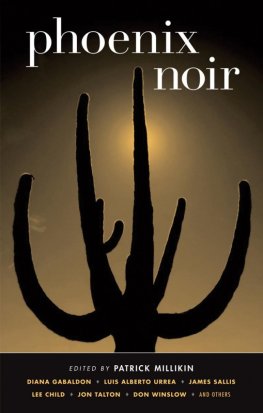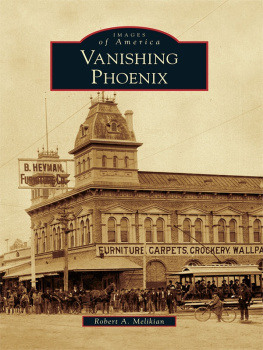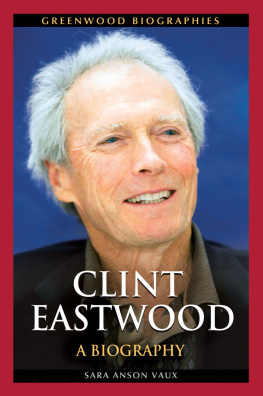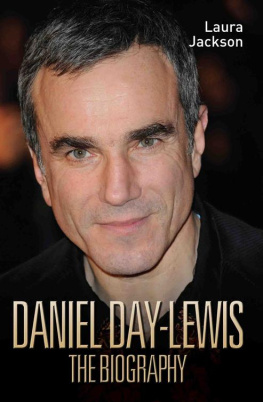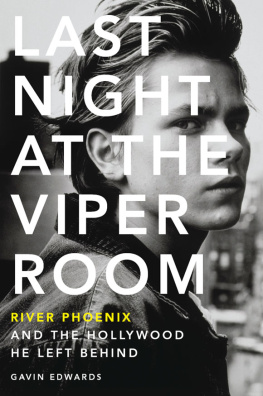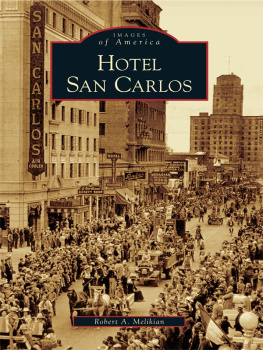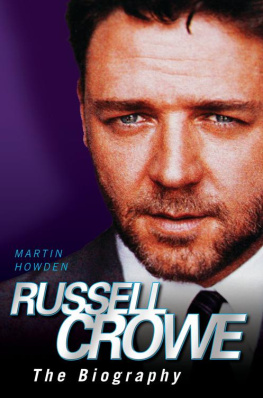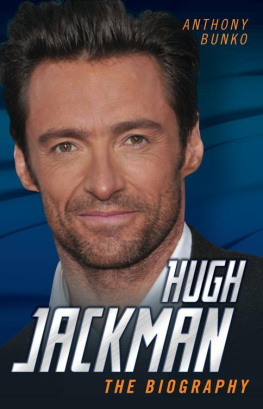
CONTENTS
CHAPTER ONE
I n conversation, interviews and in life, he has had to deal with a multitude of queries about his name. How do you pronounce your forename? Wah-keen would be his usual response. When, as a child, he decided he needed a similar nature-charged moniker to his siblings River, Summer, Rain and Liberty he would fend off questions like Why Leaf? by telling a tale of how when he was a four-year-old kid blowing leaves with his father, he decided on his new name. My brothers and sisters all had these beautiful names, and I guess I felt a little left out, he said.
Its his surname, however, for which he became known. From childhood to young adulthood, Joaquin Phoenix has been, to the worlds eye, simply the younger brother of River. It has been the way throughout his life and, tragically, his brothers death at only 23.
Rivers shadow had loomed large not just over his family members but also over the hearts of teenage girls throughout the eighties and early nineties. It was his teen heart-throb looks, which had earned him the name young Elvis by the all-powerful child-actors agent Iris Burton after she first clapped eyes on him, and his charismatic delivery in films like My Own Private Idaho and Stand By Me that captured their hearts.
But it was his death that immortalised River Phoenix. Rightly or wrongly, he would be remembered as one of the movie greats. He would never grow old, or make cuddly, safe films to top up his pension fund. His legacy is rooted in the earth of Hollywood. He had the innocent soul of someone ruined by the business like Marilyn Monroe, and the live-fast die-young rebel spirit of James Dean.
To Joaquin Phoenix, however, he was just a brother the one that he would share a room with for many, many years, and one half of their apparently dead-on impersonation of Scooby-Doo and Shaggy. There seems to be nothing to suggest any resentment from Joaquin towards River when they were growing up. In fact he always sought approval and comfort from his older sibling much as a kid would do from his father. But his older brother was exactly that. Rivers role as an authority figure, and certainly a provider for the family from a young age, marked the sort of role reversal and dysfunctional aura that would mark the Phoenix clan. However, to their credit, they also instilled a set of family values that would bond them together tightly during their many moments of personal drama.
The Phoenix kids would be remembered by many as an all-singing all-dancing clan that entertained their way through the streets handing out religious pamphlets to bemused spectators in Puerto Rico, before the focus moved on to Summer and River attempting to sing for their supper in America, and their attempt to break into Hollywood.
But it was never meant to be that way. The mother and father of this incredibly close-knit family didnt dream of Hollywood success for themselves only to live out that life through their talented brood, like pushy parents throughout the world. The life they were hoping to carve for themselves and their family was a self-contained one, far from the corruption and materialistic world they themselves had grown up in.
Arlyn Dunetz was just a normal Jewish woman, raised by a middle-class family in New Yorks Bronx and destined for a run-of-the-mill life as a Manhattan secretary in an unloving marriage to a computer programmer. She had other plans, however, and vowed that her life would be different to that of her Hungarian mother Margaret.
Arlyn once said, At eighteen I was just a clone, totally unconscious. I didnt know the air was polluted and I didnt care. I just went to work and thought that everything the government told me was right and true. It took some time before I was awakened. I became aware. It was difficult because my parents werent seeing the same thing, but I knew I had to change my life.
Her mother predicted that her daughter would end up being a hippy the then current way to rebel against your family was to join the sixties free-love revolution.
The strict, hard-right hand-wringing section of America was facing, for the first time in its life, a rebellion from its younger citizens.
The deaths of the two Kennedys and Dr Martin Luther King as well as the Vietnam War, which was in full swing in 1968 soured the nation. There was a backlash, and it was one that would be accompanied by some of the greatest music ever heard, fuelled by mind-bending drugs and topped off with one of the biggest sexual revolutions America had ever seen.
It was a time of dissension and conflict in the nation, we were seeking an answer, Arlyn said.
She formed a simple plan. She would leave her husband, whom she had married shortly after finishing high school, and make a new life for herself far away from the current lifestyle that was stifling her so much. She wasnt happy, and she believed there was more to life than the nine-to-five jobs and occasional dinner parties she was being subjected to.
The answer would be California. And she would have to hitchhike, which seems out of date now, but in 1968 it was an acceptable and popular mode of transport.
On her many attempts to hitch west to California she met John Bottom a man who, on surface level at least, was the complete polar opposite to her. He was a high school dropout who seemed content living his life on the road, away from the young daughter that he had left behind. He had suffered a series of personal tragedies whilst growing up. His mother had had a car accident when he was a young boy, the result of which left her brain damaged. His relationship with his father was not a good one. Unable to cope with his wifes medical bills, Ehlia Bottom would turn to drink to get him through it all. But the debts kept mounting up, as the drinking got worse, and it seemed only a matter of time before he would lose his home.
When John was 13 he came home to find that his father was nowhere to be found. He had simply abandoned him. His Aunt Francis would say, We went to Church every Sunday Johnny wanted to go, but he got into trouble. I remember he and another teen tried to set fire to a building. Johnny was sent to a care home, not Juvenile Hall but a place privately owned that cared for errant teens. He was a wild boy. I dont think his parents were that good to the children. They had to root for themselves.
After his father left him, John Bottoms world was turned upside down and the subsequent years would see no upturn in his fortunes as he flitted between stays with family members and orphanages. He was to turn to drink and drugs namely, marijuana. A serious back injury would hinder his attempts to try and earn a living, mostly through carpentry and gardening. The injury was due to a carpentry accident when he was young, or a head-on collision with a car while he was on his bike, depending whether you believe his relatives or John. It would, in fact, be an injury that was to play a big part in River and Joaquins path to Hollywood.
Fancying himself as a poet and a musical vagabond, Bottom dropped out of high school to roam around California looking for music work. He would have a daughter named Jodean who was conceived after a brief fling with a woman called Trinity. He had little contact with his daughter, and left for Canada in 1966 over fears he would be drafted for the Vietnam War. Two years later he returned to LA, and soon after he picked up the pretty little hitchhiker that was soon to be his wife.
There was undeniable chemistry between John and Arlyn, and she went back to Bottoms place that night, where they would end up talking for hours about their dreams and how they were fed up with the normal life that everyone wanted for them.
Next page

